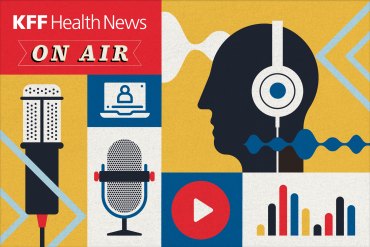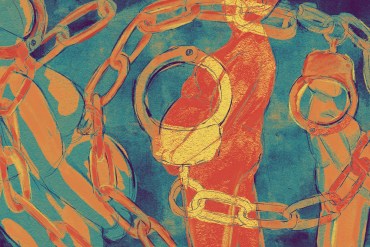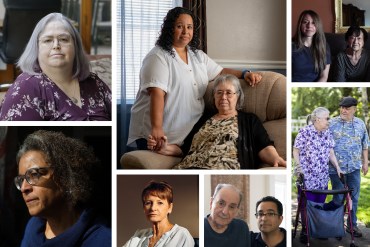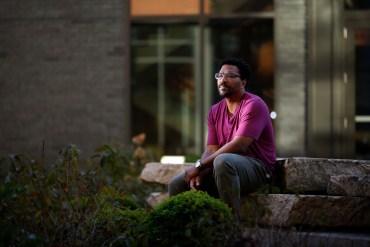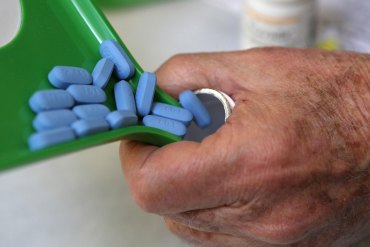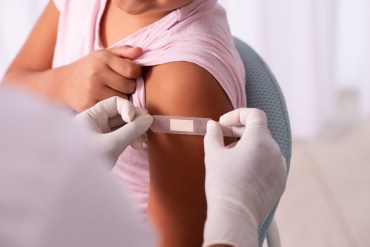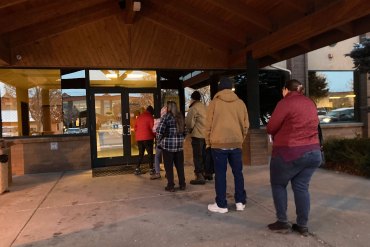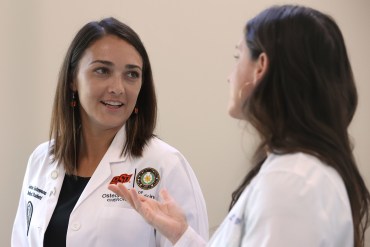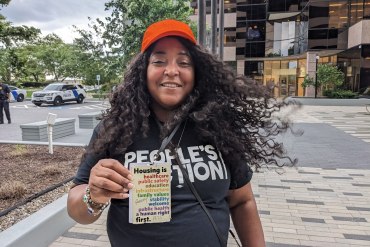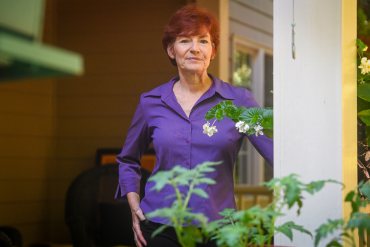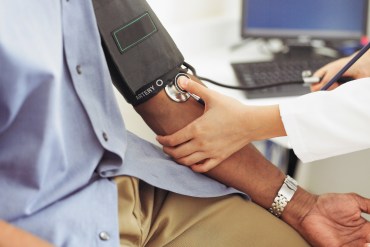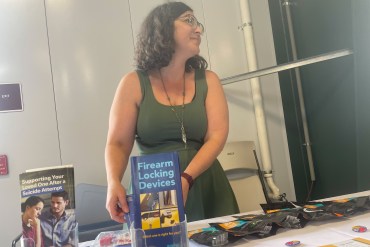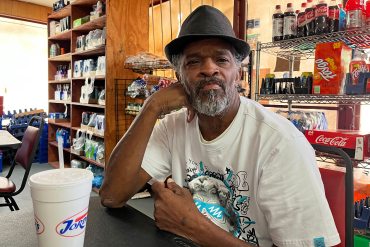Journalists Delve Into Open Enrollment, School Nurse Shortages, and More
KFF Health News and California Healthline staff made the rounds on national and local media this week to discuss their stories. Here’s a collection of their appearances.
New Social Security Report Shows Growing Overpayment Problem Tops $23B
Social Security has been overpaying recipients for years, then demanding the money back, leaving people with bills for up to tens of thousands of dollars or more.
Most States Ban Shackling Pregnant Women in Custody, Yet Many Report Being Restrained
Advocates for pregnant people in police custody say repeated incidents show prohibitions on handcuffs and other restraints are little more than lip service.
Adult Children Discuss the Trials of Caring for Their Aging Parents
The financial and emotional toll of providing and paying for long-term care is wreaking havoc on the lives of millions of Americans. Read about how a few families are navigating the challenges, in their own words.
How Lawmakers in Texas and Florida Undermine Covid Vaccination Efforts
State legislatures and politicians are pressuring public health officials to keep quiet about covid vaccines.
Underdiagnosed and Undertreated, Young Black Males With ADHD Get Left Behind
A recent study found that young Black males are substantially more likely to be underdiagnosed and undertreated for the neurological condition than white peers.
US to Cover HIV Prevention Drugs for Older Americans to Stem Spread of the Virus
The government has proposed that Medicare fully cover preexposure prophylaxis drugs that prevent HIV, a change that could help America catch up with nations in Europe and Africa that are on track to end new infections decades before the U.S. under its current approach.
Science Says Teens Need More Sleep. So Why Is It So Hard to Start School Later?
Sleep deprivation in adolescents is linked to mental health struggles, worse grades, traffic accidents, and more. That’s why states such as California and Florida have mandated later high school start times. But opposition to later times is less about the science than it is about logistics and costs.
States Reconsider Religious Exemptions for Vaccinations in Child Care
Providers and health care advocates warn a proposed rule change in Montana would jeopardize immunity levels in child care centers and communities. Efforts to change vaccination exemption rules are underway in other states, too.
‘Worse Than People Can Imagine’: Medicaid ‘Unwinding’ Breeds Chaos in States
As Medicaid programs across the nation review enrollees’ status in the wake of the pandemic, patients struggle to navigate the upheaval.
Medical School on Cherokee Reservation Will Soon Send Doctors to Tribal, Rural Areas
Native Americans and rural residents are underrepresented in medical schools. But in this new program, 25% of students are Indigenous and half are from rural areas.
Gubernatorial Candidates Quarrel Over Glory for Winning Opioid Settlements
Some gubernatorial candidates are sparring over bragging rights for their state’s share of $50 billion in opioid settlement funds. Many of the candidates are attorneys general who pursued the lawsuits that produced the payouts.
When That Supposedly Free Annual Physical Generates a Bill
Completing a routine depression screening questionnaire during an annual checkup is cost-free under federal law. But, as one woman discovered, answering a doctor’s follow-up questions might not be.
Smaller Employers Weigh a Big-Company Fix for Scarce Primary Care: Their Own Clinics
Company health clinics are most common at large workplaces, but some small employers say they see advantages, too: healthier workers, lower costs, and better access to primary care.
Storing Guns Away From Home Could Reduce Suicides, but Legal Hurdles Loom
Safe storage maps show gun owners where to put their firearms for safekeeping if they experience a mental health crisis. The idea has support among some gun enthusiasts, but legal obstacles threaten wider adoption.
Residents of a Rural Arkansas County Grapple With Endemic Gun Violence
Rural gun homicides have often been overshadowed by violence in cities. But they are taking their toll on small communities ill-equipped to deal with the challenges.
Quick Genetic Test Offers Hope for Sick, Undiagnosed Kids. But Few Insurers Offer to Pay.
A new, rapid genetic test shows promise in increasing diagnoses and improving treatment for some children with rare genetic conditions. Many insurers won’t cover it, but Florida’s Medicaid program is among those that see benefits — and, potentially, savings.
Using Opioid Settlement Cash for Police Gear Like Squad Cars and Scanners Sparks Debate
State and local governments will receive a windfall of more than $50 billion over 18 years from settlements with companies that made, sold, or distributed opioid painkillers. Using the funds for law enforcement has triggered important questions about what the money was meant for.
Pruebas genéticas rápidas a bebés pueden salvar vidas, pero muchas aseguradoras no las cubren
Que Medicaid cubra la prueba puede expandir significativamente el acceso para los bebés; el programa de salud federal gerenciado por los estados que asegura a las familias de bajos ingresos y que cubre a más del 40% de los niños en su primer año de vida.
Abortion Coverage Is Limited or Unavailable at a Quarter of Large Workplaces
A KFF survey of employer health benefits shows that 28% of large U.S. companies have limited or no access to abortion under company health insurance.




